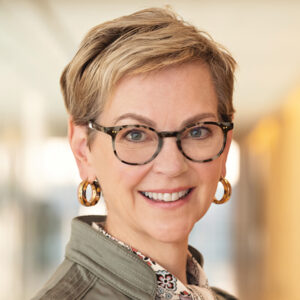
When I was a hematology-oncology fellow at the University of Rochester, the other fellow and I would give a presentation to faculty each week. I was assigned the topic of adjuvant chemotherapy for breast cancer. Although I had planned on specializing in the care of people with leukemia, I thought it would be prudent to train in oncology as well (“just in case I changed my mind”). I was unexpectedly captivated by the topic of adjuvant therapy and knew after that presentation that I wanted to help people make decisions about treatment in the setting of uncertainty, identifying their values and helping provide excellent information support. Evoking my patients’ goals and desires, eliciting their fears, and taking the best care of them in the exam room and between visits have brought meaning to my work. Time just falls away in these patient appointments. My guess is that you feel the same, that time with your patients (the reason you went into healthcare in the first place) is what brings you joy at work.
Joy at work is under threat in our field. The electronic medical record, prior authorizations, administrative burdens, and being understaffed and under-resourced are only some of the things that sap joy. In a recent Doximity poll of close to 4000 physicians, oncologists ranked third from the lowest1 among those surveyed when asked to rate their happiness (only neurology and thoracic surgery were lower). And in a recently published study2 of registered nurses in Michigan, over 90% reported emotional exhaustion. These findings are clearly concerning given the workforce shortages we are facing in healthcare in general and in oncology in particular. It is helpful to know that a healthy workplace culture and supportive colleagues buffer the stressors we face daily.
At the Michigan Oncology Quality Consortium, our core values are trust and integrity, compassion, collaboration, and growth mindset. We work with you to select measures that avoid adding clinical or administrative burden to you or to your teams. Our goal is to effect meaningful change and to avoid measuring attributes of care that do not matter to patients and their loved ones. This is why we have the members of the Patient and Caregiver Oncology Quality Council weigh in on everything we do. We ask, “Is this important to you?” and “Are we missing anything?” Their input and yours has led us to move the field forward beyond that seen nationally. We believe that quality improvement belongs to everyone and that the knowledge you share and the community you’ve created have made MOQC successful. Please let us know if you have thoughts about our measures and any of the work we do.
Our June Biannual Meeting will focus on practical ways in which we can foster wellbeing among all team members. We have a remarkable panel of experts planned. Please invite people from your practice, including nurses, NPs, PAs, pharmacists, MAs, who haven’t come before. We can’t wait to see you. And of course, we’ll see you at your regional meeting.

Dr. Jennifer Griggs
Program Director
1http://tinyurl.com/3kw5dss7
2http://tinyurl.com/ykwrtrr5